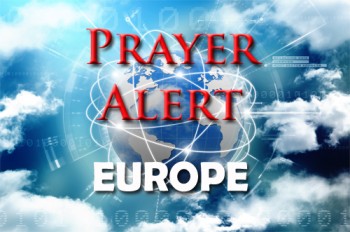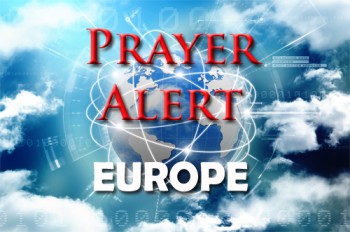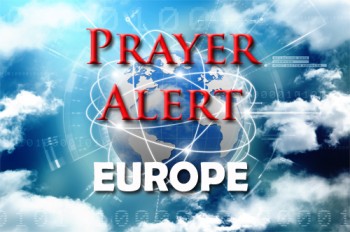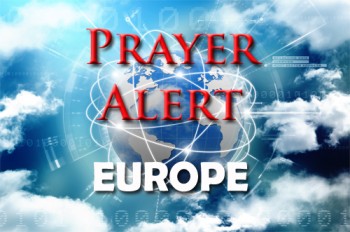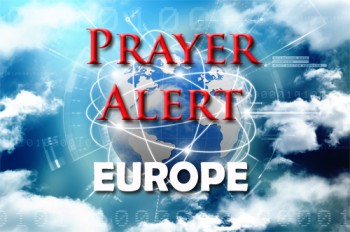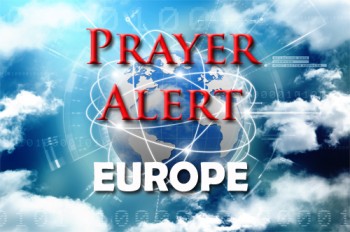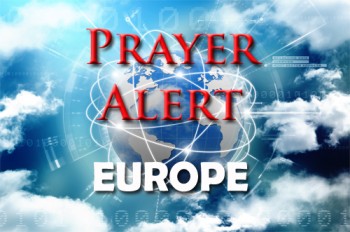Displaying items by tag: Europe
Greece: inhumane refugee camps
Pray for the Greek government trying to find new solutions to unhealthy sanitary conditions for thousands of migrants living in camps. In January it was urged to order an immediate evacuation of 100+ sick children from Moria refugee camp on Lesbos. Médecins Sans Frontières accused Athens of ‘deliberately depriving’ at least 140 minors of adequate medical care for what they described as chronic, complex and life-threatening diseases, and said it was urgent they were moved from notorious Moria to the mainland or to other EU member states. The new conservative government announced that the current overcrowded camps will close this year’, planning to replace them with smaller facilities which should be operational by mid-2020. However, administrative officials and residents of Lesbos, Chios, Samos, Leros, and Kos are gathering in front of the interior ministry to protest against these plans.
Ireland: new government needed
Ireland needs to form a new government after election results showed Fianna Fáil winning 38 seats, Sinn Féin 37, and Fine Gael 35. The numbers indicate that negotiations to establish a government could be prolonged. The prospect of the left-wing, nationalist Sinn Fein entering Ireland’s government looks likely. This could make some people uncomfortable when they recall all the ‘Troubles’ of the past. In a world of fragmenting politics with Ireland’s Fine Gael and Fianna Fáil, onlookers say it was only a matter of time before Sinn Fein found a route to power. Before the election, both the other parties had ruled out forging a coalition with Sinn Fein, citing its tax policies and IRA past as deterrents. Sinn Fein leader Mary Lou McDonald has said she would ask the EU to support Irish reunification if she was part of the next government.
Spain: ‘We have nothing to keep the sea out’
After Storm Gloria devastated one of the Mediterranean’s largest wetlands in January, an urgent search began for solutions to protect it from further floods and creeping water levels. The low-lying Ebro delta suffered most, with waves inundating rice fields and irrigation channels with saltwater as far as two miles inland. Industry has reduced essential sediment from reaching the delta. The sediment is essential for local ecology and protecting shorelines from erosion. Some shorelines are receding over five metres annually. Gloria badly damaged mussel and oyster farms, which sustained losses of £1.3 million. ‘No one has ever seen a storm like this here’, said one farmer. Houses were flooded. ‘Imagine the impact of nine-metre waves and 100km per hour winds hitting a region at sea level,’ said the president of the Ebro delta. For decades the delta’s fragile ecology has suffered from political neglect and over-exploitation of the river.
France: protests continue
Doctors and lawyers marched in Paris on 3 February, demonstrating against President Macron's pension reforms. It is the latest in a wave of protests against Macron's signature reform, streamlining France's complex and expensive pension system that allows some French workers to retire as young as 50. It has led to more than sixty days of strikes and protests by many different people, including transport workers, women's groups, and those in the tourism and energy sectors. These protests have seen tourist attractions like the Eiffel Tower closed, and electricity and gas cut off by workers at energy plants. Macron hopes he can force his reform through parliament this month. Prime minister Edouard Philippe will negotiate with unions from 10 February to make the new retirement system financially sustainable.
Malta: a wake-up call to church
A float depicting Archbishop Charles J Scicluna will take part in Valletta’s carnival parade, despite criticism. Rayvin Galea, the artist behind the float’s design, hopes to get across various issues which he feels have not properly been addressed by the Church. They include its opposition to same-sex marriage, depicted on his float through a figurine of a gay couple on top of a wedding cake, while the Church’s opposition to IVF takes the form of two horned cherubs. Scicluna will wear a military uniform, which represents the Church’s conservative stance on many social issues. Missing will be the words ‘St Joseph’s Home’ above the Scicluna effigy, which would have been a reference to the sexual abuse of children in the late 80s at the church orphanage. The float also features Lady Justice with a blindfold, a balance, and a sword, showcasing the lack of justice received by the victims of the abuse.
Britain leaves EU
Three million newly-minted 50p coins celebrating the UK leaving the European Union on 31 January have entered circulation. They bear the inscription ‘Peace, prosperity and friendship with all nations’. Chancellor Sajid Javid said ‘This coin marks the beginning of an exciting new chapter in British history. Let us look forward with confidence and unleash the enormous potential of our great country.’ Seven million more coins will follow in the coming months. Meanwhile Finland’s foreign minister, Pekko Haavisto, speaking at the World Economic Forum in Davos, said that other countries have seen the issues faced by the UK: ‘What Brexit actually triggered was a lot of support of EU members. Seeing how difficult it is to leave and how many agreements they have to make to leave, so maybe it is better to stay.’ See. The World Prayer Centre, Birmingham have instigated a Call to Prayer at 11pm on Friday 31st January, the time that the UK officially leaves the EU: https://www.worldprayer.org.uk/Event/call-to-prayer-brexit-31-january.
Turkey earthquake: 1,600+ hospitalised, dozens dead
Social media videos show patients in overcrowded hospitals, as over 1,600 people have been hospitalised in eastern Turkey after a 6.7 magnitude earthquake. At least 36 people have died. Most of the injured were in Elazig province, the epicentre of the earthquake. 3,699 search and rescue personnel have been deployed. Fifteen aftershocks have been felt in the wake, with the strongest registering at 5.4. ‘All relevant departments are taking measures to ensure the safety of citizens following the earthquake’, said President Erdoğan.
Germany: Libya civil war Berlin meeting
The Berlin conference on Libya, attended by rival leaders in the civil war and many international leaders including Vladimir Putin and Turkish President Erdogan, concluded on 19 January. It set forth mechanisms for the establishment of a cease-fire committee which will meet regularly. However, few expect short-term changes on the ground in Libya, as a sustainable resolution remains elusive. In the days following the summit, observers said that Turkey’s increased involvement in the conflict has expanded its diplomatic clout in the nine-year conflict; it has positioned itself as a key broker in developments moving forward. Boris Johnson said that the aim of the conference was to ‘stop jockeying for position. The people of Libya have suffered enough. It is time for the country to move forward.’
Switzerland: Davos - climate change
The World Economic Forum annual meeting of 3,000 of the world's richest and most powerful people took place this week in Davos. One of the speakers was Greta Thunberg, who opened a debate entitled, ‘How to avert a climate apocalypse’. Attendees were not able to avoid climate change, as the theme was ‘Stakeholders for a Cohesive and Sustainable World.’ Meanwhile let us pray for Canadian residents cleaning-up after a monstrous winter storm that brought thirty inches of snow, causing chaos; for Australians dealing with the aftermath of severe thunderstorms, floods and hail the size of golf balls in different areas, while fire weather warnings cover parts of Western Australia; and for tens of thousands living near the restless Philippines volcano ‘recharging’ with fresh magma and toxic gas. The forum is asking all companies in Davos to commit to net zero carbon emissions by 2050.
Germany: deported asylum-seekers ‘face torture or death’
The leader of the German Evangelical Alliance, Reinhardt Schink, spoke out against the tragedy of Christian refugees and migrants who are sent back to Afghanistan and Iran, even though they could face prison, torture and death. He cited statistics about asylum-seekers who have converted to the Christian faith in Germany, but later been rejected by the authorities. ‘Behind all these nameless figures are devastating personal destinies, and risk us harming our own values system. Authorities should use the “know-how” of the Christian churches.’ He said that experts should engage with church leaders, who guarantee that a person has effectively been baptised, taken a Christianity course, and become an active member of a church community. Schink added, ‘It looks as if pastors are suspected of not telling the truth. We hurt ourselves as a country when precisely those migrants who had integrated well and had become bridge builders between cultures are expelled.’
